|
NEW YORK STATE LITERARY CENTER'S Incarcerated Education Program
2014 - 2015
The ninth year of the New York State Literary Center's Incarcerated Education Program began with a survey of incarcerated adults in NYSLC's classes at Monroe Correctional Facility asking them to identify what was important to them and what they would like to learn more about. Through their written responses and in classroom discussion, children and the issues and experiences relevant to the incarceration of a parent stood out. This led to NYSLC to initiate Rebuilding Families. Dale Davis began with a Reading List on the effects of incarceration on children whose parents are incarcerated https://www.nyslc.org/ReadinglistNinthYear.htm.
Until now I didn't realize that my 9-year-old son is also doing time. Me, he, she, everyone I love is suffering. The months I will spend in here are time I will never be able to get back. It's gone. This is the first and last time I will be unavailable to my son. My sister did 4 years in prison, and it destroyed her kids' lives and my mother's relationship with her. When I get out I want to be the best father I can be.
Dear Son,
I am sorry I missed the last half of your football season. In order for us to take trips and move forward Daddy had to go away for a while. I promise I will never be away from you again as long as I live.
My son, I love you. You are all I have.
Cliff
NYSLC's research continued to confirm the dissolution of families, the harm to children who have to give up their homes, their safety, their self-image, their anger, and the resultant perpetuation of the cycle of crime and incarceration from one generation to the next as one of most significant collateral consequences of the prison population in the United States. Children are more likely to become homeless, drop out of school, suffer significantly higher rates of behavioral and mental-health problems, most notably aggression, suffer from anxiety and attention deficient disorders, engage in delinquent behavior, and subsequently be incarcerated themselves (Christopher Wildeman and Sara Wakefield. "Children of The Prison Boom: Mass Incarceration and the Future of American Inequality." Oxford University Press, 2013 https://www.journals.uchicago.edu/doi/10.1086/679754?mobileUi=0& and Kristin Turney. "Parental Incarceration Can Be Worse for a Child Than Divorce or Death of a Parent." American Sociological Association, August, 2014 https://www.asanet.org/press-center/press-releases/parental-incarceration-can-be-worse-child-divorce-or-death-parent.)
A survey conducted by New York State Criminal Justice Services in 2013, constructed to assess incarcerated parents' plans to reunite with their children, found the most widely reported anticipated barrier to reunification was the need to rebuild the relationship with the child. The survey provided data driven support for programs addressing the need to build the capacity to address parent/child relationships prior to and after the parent returns home ("Children of Incarcerated Parents In New York State A Data Analysis," New York State Division of Criminal Justice, 2013).
Rebuilding Families began here. The continuing research and writing and discussion in NYSLC's two classrooms, discussion with Rochester Broadway Theater League's Chief Operating Officer, John Parkhurst, and Education/Outreach Director, Bob Sagan, and input from the Office of The Sheriff were the foundation for a pilot with the Rochester Broadway Theater League to reunite incarcerated parents in NYSLC's Incarcerated Education Program with their families through classroom readings and writing assignments while incarcerated and a shared experience attending a Broadway musical upon their release to reduce the impact of incarceration on children and to rebuild and reaffirm the family following incarceration.

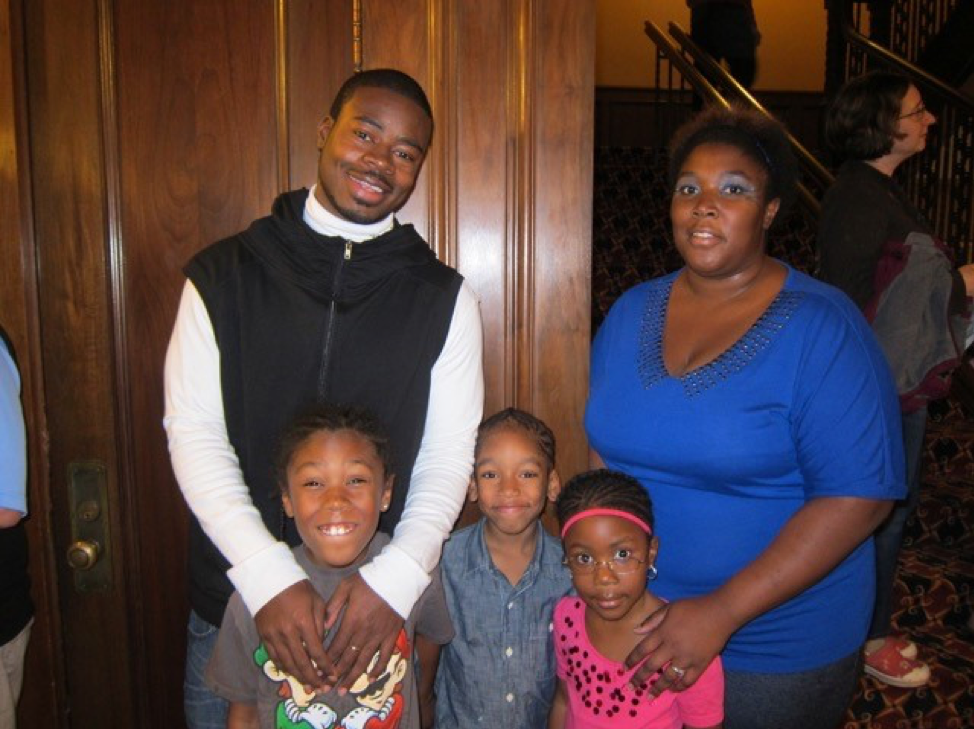


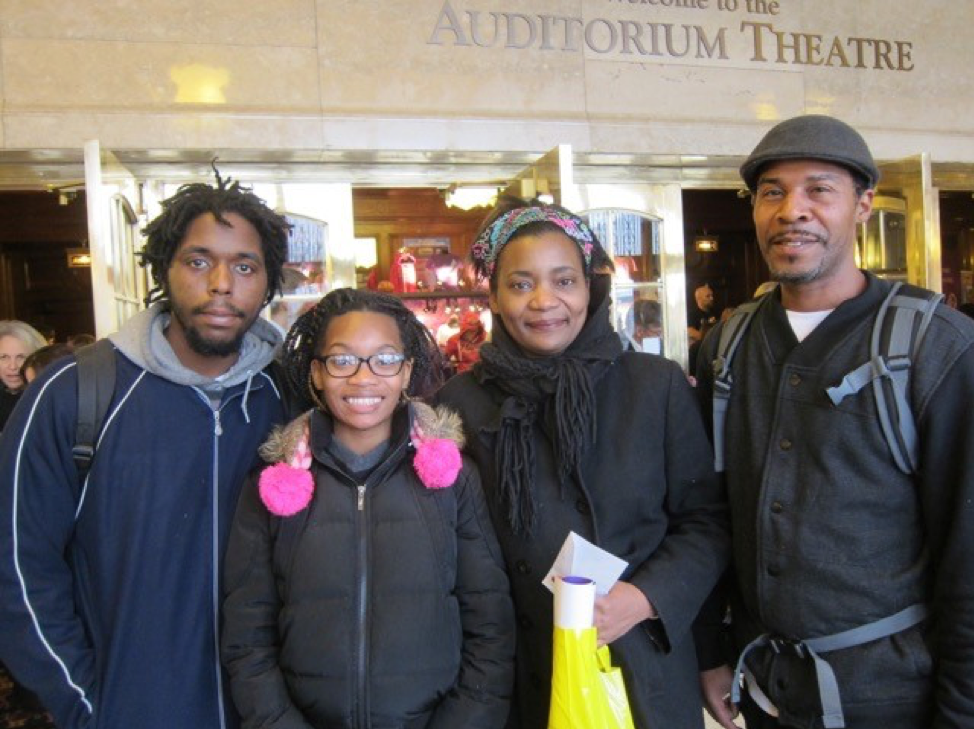


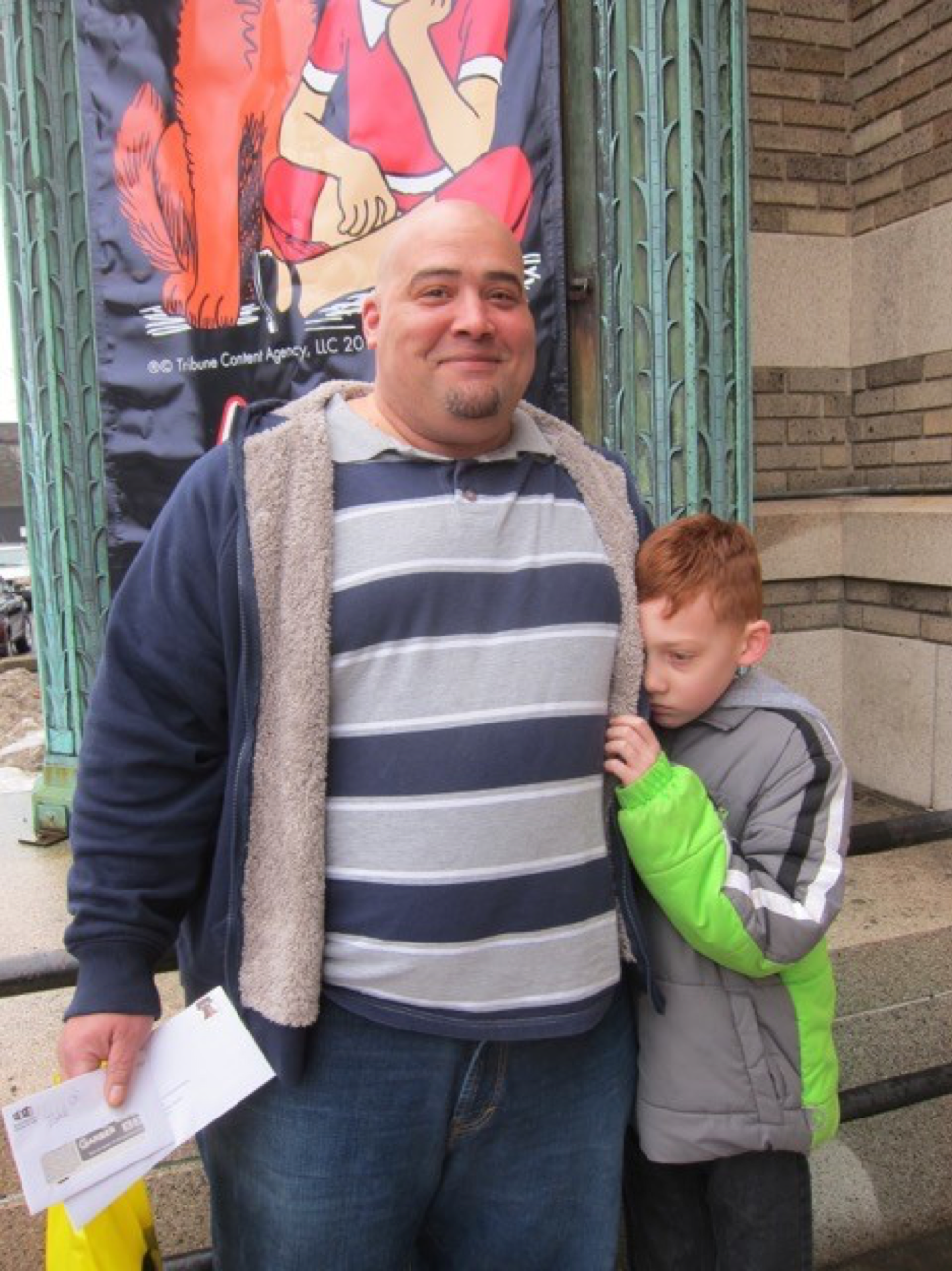
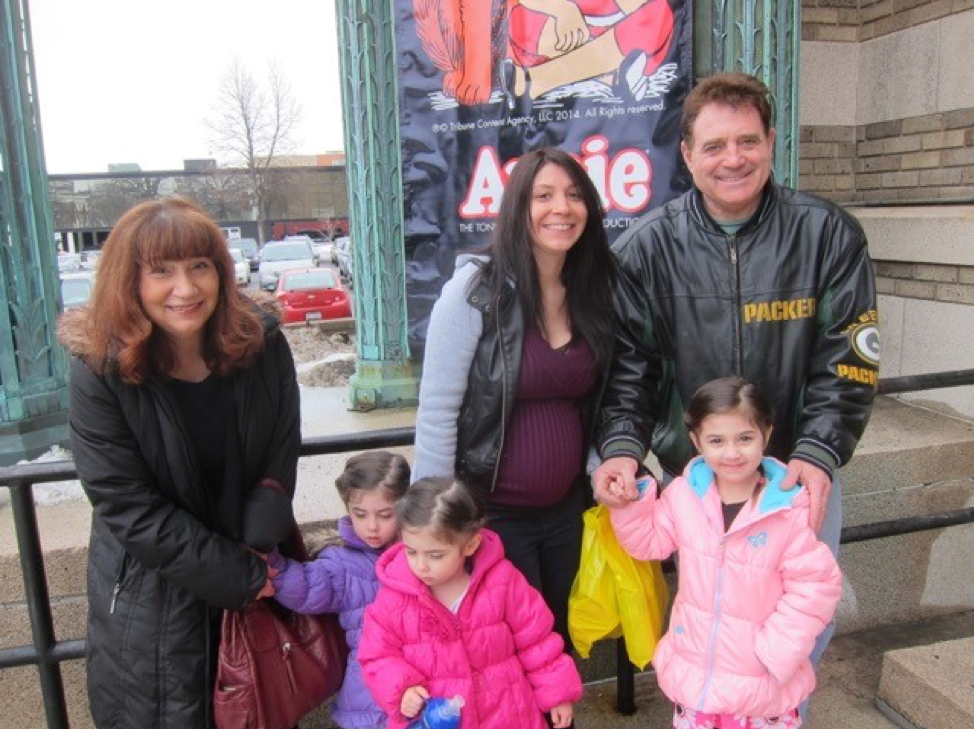
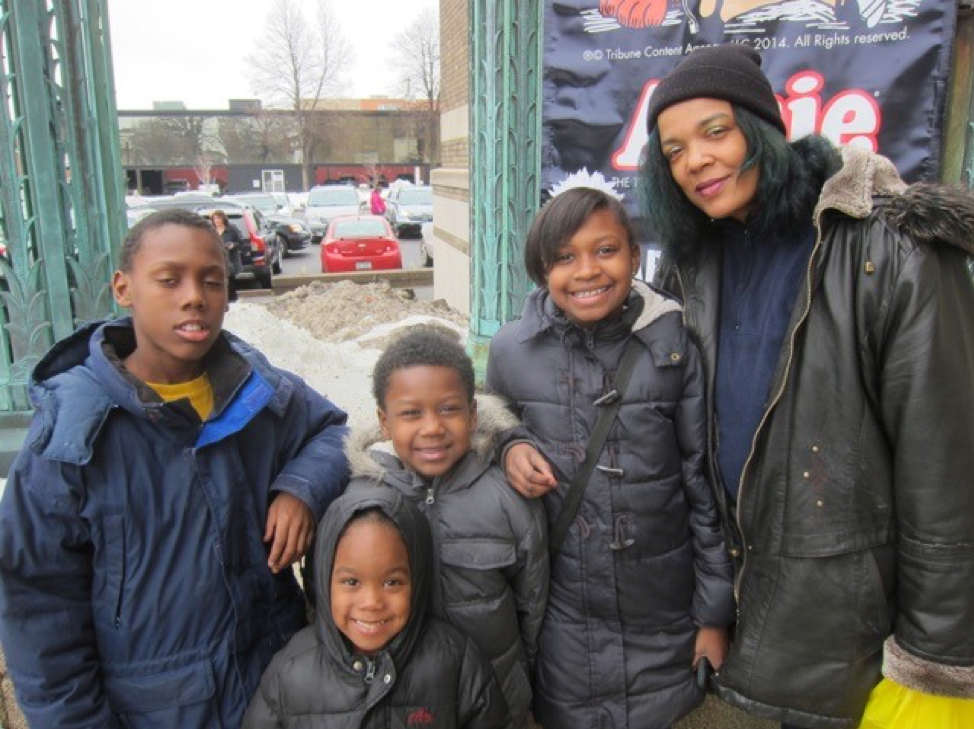
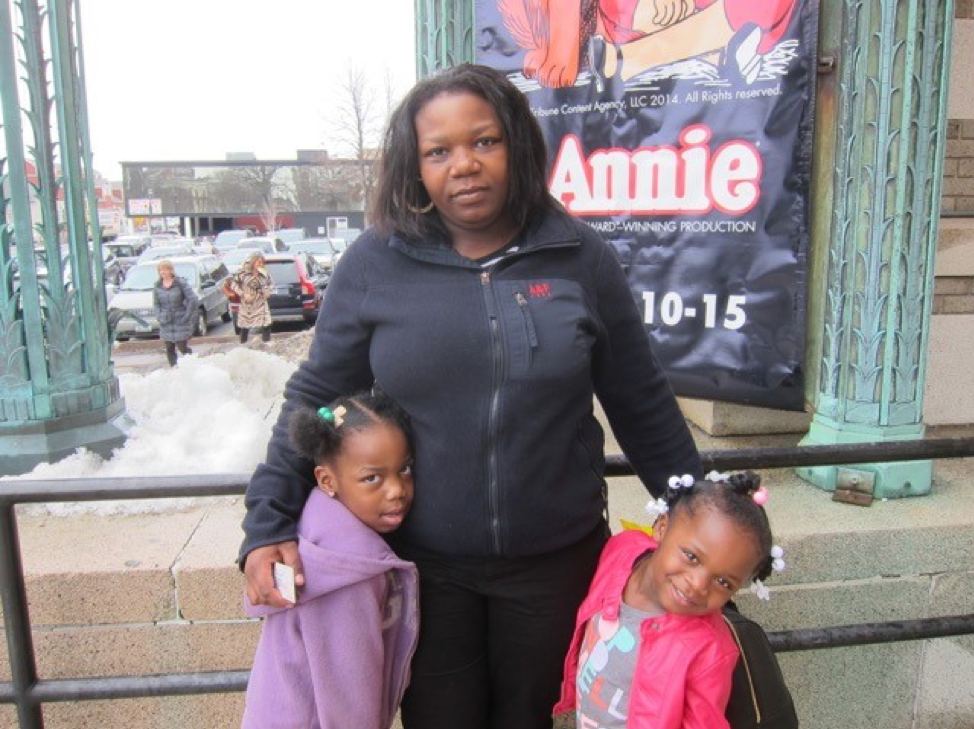
In addition to the pilot with the Rochester Broadway Theater League, NYSLC responded to the additional written responses and the classroom discussion in the survey:
- Information on College Applications
- Rochester's Poverty Initiative
- What is Important to Me
- Job Hunting with a Criminal Record
- What Would Have Kept Me From Coming to Jail
Dale Davis compiled a Reading List in response to the additional written responses and classroom discussion.
This led NYSLC to create FOOD FOR THOUGHT, a newsletter, written by those incarcerated at Monroe Correctional Facility, Rochester, New York, published by the New York State Literary Center.
FOOD FOR THOUGHT was a publication to reach out with the thoughts and ideas of those incarcerated and housed at Monroe Correctional Facility. "Our writing reflects un-imprisoned minds doing time."
In my community people don't see me. At times I feel as if I am a burden to society due to the simple fact that I was not employed for the year and a half that I engaged in criminal activities to remain stable.
I know I can be a great help, influence, and voice in my community if I chose to do the right things with my life and continue my education. The lack of jobs and opportunities make me despise my community. Stigmas and discrimination make me hate the establishment and give up. Poverty made me feel as if I had nothing to lose so why not risk my freedom for the things I needed but couldn't afford.
In my community I am no one. I am a mother struggling and living in poverty.
Writing for FOOD FOR THOUGHT gives me time to think and to express myself. It has given me a voice and a desire to change and make an impact. I'm learning that yes I may have done wrong and yes I am incarcerated, but this does not hinder me from thinking and from having an opinion on a topic that is dire in our community. Someone can only know poverty if she has lived it and gone hungry first hand.
The FOOD FOR THOUGHT group has me reconsidering my thought process about poverty, parenting, incarceration, and our community. It has opened my eyes to the vulnerability one feels when they succumb to poverty. How susceptible one is to incarceration by any means. Many may think otherwise but fighting poverty sometimes involves incarceration. It is simply a survival tactic.
I have learned to voice my concerns, admit my wrongs, and advocate for change.
No one ever asked me these questions. No one asked me if I needed help. Many have seen me steal, but no one has ever given me a hand. No one has asked me what I need. The system didn't give me a chance. It took me from my children. No one wants to hear me express myself. Everyone wants to see me punished.
ShaAsia
FOOD FOR THOUGHT, the newsletter, written by those incarcerated at Monroe Correctional Facility, Rochester, New York, published by the New York State Literary Center. https://www.nyslc.org/food%20for%20thought.htm
During the summer of 2015, David Shakes worked with a NYSLC class on a theater piece to commemorate the 50th Anniversary of Voting Rights Act of 1964, the landmark piece of federal legislation in the United States that prohibits racial discrimination in voting. Juliana Muniz videotaped the performance and Dale Davis produced the video "Where Have We Been: 1964" to celebrate both the performance and the 50th Anniversary of Voting Rights Act of 1964 https://www.nyslc.org/video1964.htm.
|
